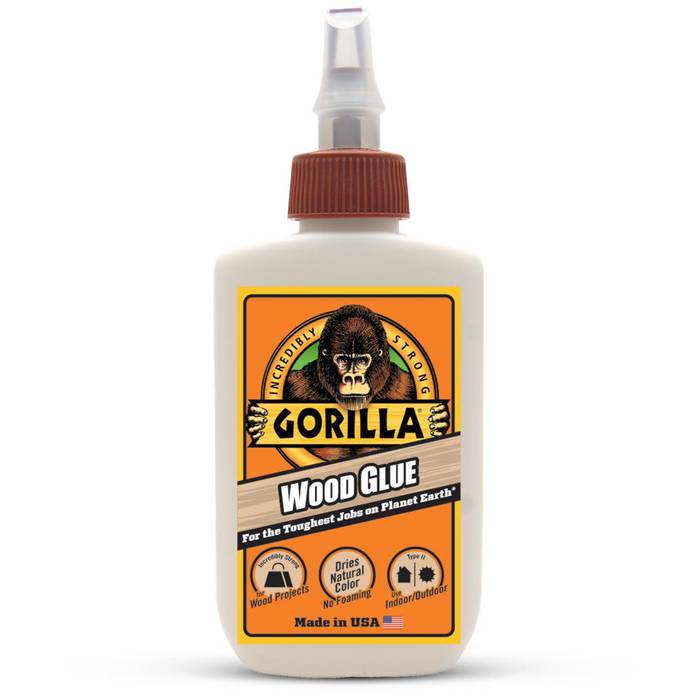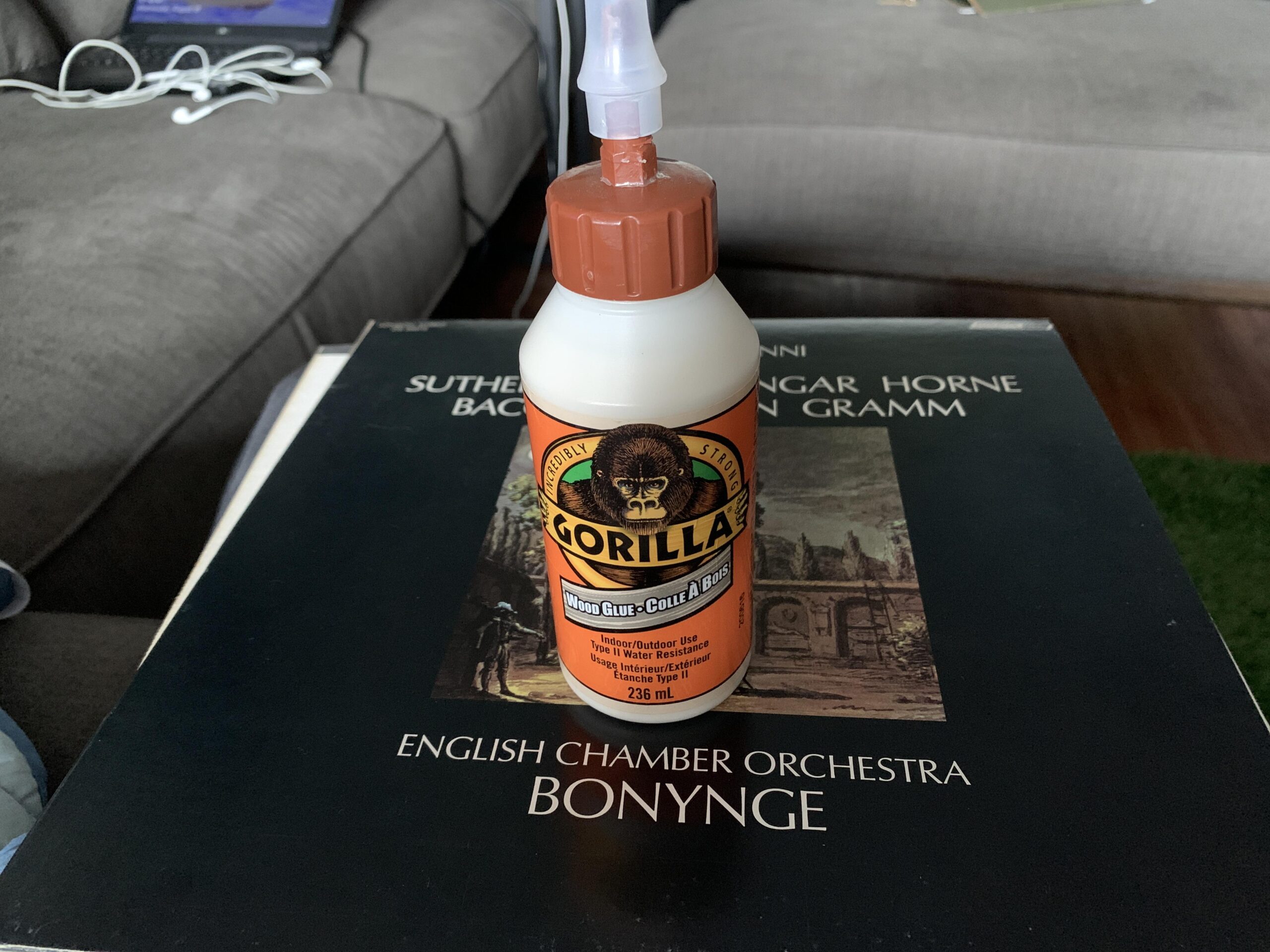When it comes to DIY projects and repairs, it’s important to have the right adhesive for the job. But what if you’re wondering, “Will Gorilla Wood Glue work on vinyl?” Well, don’t worry, because we’re here to find out! In this article, we’ll explore whether Gorilla Wood Glue is suitable for bonding vinyl materials. So, let’s dive in and discover if this versatile glue can handle the task.
Vinyl is a popular material used in various applications, from flooring to upholstery. And Gorilla Wood Glue is known for its strength and versatility when it comes to bonding wood surfaces. But the question remains, can it hold its own when it comes to vinyl? Stick around as we explore whether Gorilla Wood Glue is up to the challenge of bonding vinyl materials.
Whether you’re working on a craft project or repairing vinyl materials, it’s essential to choose the right adhesive. So, let’s settle the debate once and for all and find out if Gorilla Wood Glue is the go-to option for bonding vinyl. In this article, we’ll uncover the truth and provide you with the answers you need. Let’s get started!

Will Gorilla Wood Glue Work on Vinyl?
Gorilla Wood Glue is a popular adhesive known for its strong bonding properties, but can it be used on vinyl materials? Vinyl is a versatile synthetic material used in various applications, such as flooring, upholstery, and crafting. In this article, we will explore whether Gorilla Wood Glue is suitable for bonding vinyl and provide valuable information to help you make an informed decision.
Understanding Gorilla Wood Glue
Gorilla Wood Glue is a PVA-based adhesive specifically designed for woodworking projects. It is known for its strong bond, versatility, and ability to withstand various environmental conditions. The glue dries clear and can be sanded, painted, or stained once dry. It is popular among woodworkers for its ease of use and reliability when bonding wood surfaces. Gorilla Wood Glue is well-suited for applications that require a strong and durable bond.
However, when it comes to bonding vinyl, the properties of the glue may not be as effective. Vinyl is a non-porous material, meaning it has a smooth surface that can make it challenging for glue to adhere properly. Additionally, vinyl can be flexible, and the bond may not be able to withstand the movement and stress that vinyl materials can experience. While Gorilla Wood Glue may provide some initial adhesion, it may not be the most suitable adhesive for long-lasting and reliable bonds on vinyl surfaces.
Alternative Adhesives for Vinyl
If you are looking to bond vinyl materials, there are alternative adhesives that are specifically formulated for this purpose. Vinyl adhesives, also known as vinyl cement or vinyl glue, are designed to create strong bonds on vinyl surfaces. These adhesives are often solvent-based and have the ability to penetrate and bond with the vinyl material, providing a durable and flexible bond that can withstand movement and stress.
When using vinyl adhesives, it is essential to follow the manufacturer’s instructions for application and curing times. Proper surface preparation, such as cleaning and roughening the vinyl surface, can also improve the bond strength. Additionally, some vinyl adhesives may require the use of clamps or pressure during the curing process to ensure a strong and secure bond. By using a vinyl adhesive specifically formulated for this material, you can achieve the best results and ensure a reliable bond on your vinyl projects.
Tips for Working with Vinyl Adhesives
When using vinyl adhesives, it is important to keep a few tips in mind to ensure a successful bonding experience. Here are some helpful tips:
- Clean the surfaces: Before applying the adhesive, ensure that the vinyl surfaces are clean and free from dust, debris, and any contaminants that may interfere with the bonding process.
- Roughen the surface: While vinyl adhesives can bond with smooth surfaces, roughening the vinyl slightly with fine-grit sandpaper can enhance the adhesive’s ability to penetrate and bond with the material.
- Apply the adhesive evenly: Use a brush or applicator to evenly spread the adhesive on both surfaces. Avoid using too much adhesive, as it can lead to excessive squeeze-out and messiness.
- Use clamps or pressure: Depending on the adhesive’s instructions, apply clamps or pressure to the bonded surfaces during the curing process. This helps ensure a strong and secure bond.
- Allow proper curing time: Be patient and allow the adhesive to fully cure according to the manufacturer’s instructions. Rushing the process can compromise the bond strength.
Conclusion
While Gorilla Wood Glue is an excellent adhesive for woodworking projects, it may not be the best choice for bonding vinyl materials. Vinyl adhesives specifically formulated for this purpose offer better bonding properties and durability on vinyl surfaces. When working with vinyl, it is essential to use the right adhesive to achieve reliable and long-lasting bonds. By following the tips mentioned above and selecting a vinyl adhesive, you can ensure successful bonding on your vinyl projects.
Will Gorilla Wood Glue Work on Vinyl?
- Gorilla Wood Glue is not recommended for use on vinyl materials.
- Wood glue is specifically formulated for bonding wood surfaces together.
- Vinyl requires a specialized adhesive that is designed for vinyl materials.
- Using wood glue on vinyl may result in weak bond and eventual failure.
- It’s important to use the right adhesive for the specific material to ensure a strong and durable bond.
Frequently Asked Questions
Gorilla Wood Glue is a popular choice for many woodworking projects, but will it work on vinyl materials? Here are some common questions answered!
Can Gorilla Wood Glue be used on vinyl?
No, Gorilla Wood Glue is not recommended for use on vinyl materials. While it is a strong adhesive for wood, it may not bond well to vinyl due to its different surface properties. Vinyl is a synthetic material that requires a specialized adhesive designed specifically for vinyl bonding. Using Gorilla Wood Glue could result in a weak or ineffective bond, and the glue may not adhere to the vinyl properly.
If you are looking to bond vinyl materials, it is best to use an adhesive that is specifically formulated for vinyl, such as a vinyl adhesive or a vinyl repair adhesive. These adhesives are designed to provide a strong and durable bond on vinyl surfaces, ensuring optimal performance and longevity.
What type of adhesive should I use for bonding vinyl?
For bonding vinyl materials, it is recommended to use a specialized vinyl adhesive. Vinyl adhesives are formulated to bond well to vinyl surfaces, providing a strong and durable bond. These adhesives contain specific ingredients that promote adhesion to vinyl and ensure optimal performance.
When choosing a vinyl adhesive, make sure it is suitable for the specific vinyl material you are working with. There are different types of vinyl, such as rigid vinyl and flexible vinyl, and each may require a different adhesive formulation. It is important to read the product label and instructions to ensure compatibility and proper application.
Can I use Gorilla Wood Glue as a temporary adhesive for vinyl?
Gorilla Wood Glue is not recommended as a temporary adhesive for vinyl. While it may hold the vinyl temporarily, it is not designed for bonding vinyl materials and may not provide a strong enough bond. Additionally, Gorilla Wood Glue dries to a rigid finish, which may not work well with the flexibility of vinyl materials.
If you need a temporary adhesive for vinyl, consider using a removable adhesive or a temporary vinyl adhesive specifically designed for temporary bonding. These adhesives are formulated to provide a temporary bond that can be easily removed without damaging the vinyl surface.
Are there any alternatives to Gorilla Wood Glue for bonding vinyl?
Yes, there are several alternatives to Gorilla Wood Glue for bonding vinyl materials. Some popular choices include vinyl adhesives, vinyl repair adhesives, and contact adhesives. These adhesives are specifically formulated for bonding vinyl surfaces and provide strong and durable bonds.
When choosing an alternative adhesive, it is important to consider the type of vinyl material you are working with and the specific bonding requirements. Some vinyl adhesives may work better for rigid vinyl, while others may be more suitable for flexible vinyl. Always read the product label and instructions to ensure proper application and compatibility with your specific vinyl material.
Can I use Gorilla Wood Glue on other materials besides wood?
Gorilla Wood Glue is primarily designed for bonding wood materials. While it may work on some other porous materials such as paper or cardboard, it may not be suitable for non-porous materials like plastic or metal. It is best to check the product label or consult the manufacturer’s website for specific recommendations on material compatibility.
If you need to bond materials other than wood, there are adhesives available that are specifically formulated for those materials. For example, there are specialist adhesives for bonding metal, plastic, fabric, and more. These adhesives are designed to provide a strong bond on specific materials and ensure optimal performance.

Summary
Gorilla Wood Glue is not recommended for use on vinyl materials because it is designed specifically for wood. Vinyl requires a specialized adhesive that is flexible and can bond to non-porous surfaces. It is important to choose the right glue for the specific material you are working with to ensure a strong and lasting bond.
